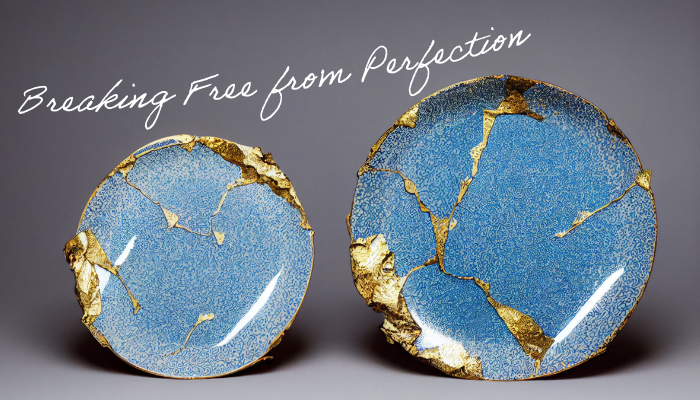
By Rachel Teichberg, CVPM, CVBL, CCFP
Like many of you reading this, I struggle with perfectionism, but I wasn’t always like this. My pre-college life ran on the philosophy “do the best you can”, but once I planned to apply to vet school, suddenly “doing my best” just wasn’t going to cut it.
Being perfect for an application slowly trickled into other areas of my life, and by the time I realized vet school wasn’t my true calling the damage was done, and I was a full-blown perfectionist. My new-found tendencies were regularly rewarded and praised whether it be in college or once I joined the workforce and just became who I was. Like many of you, I made jokes about it and thought nothing else of it. How could being a perfectionist be a bad thing? What’s wrong with having high standards?
As I settled into my career as a manager, my perfectionism led to some challenges:
- I didn’t recognize myself – I was playing the part of a manager, trying to be everything I thought my boss and my team wanted. The imposter syndrome was at an all-time high and I felt like I needed to continuously prove myself. I was working incredibly hard trying to get the Oscar for Best Actress in a Leading Role.
- I had no boundaries – Part of being perfect meant I had to do it all myself. I rarely, if ever, asked for help, said yes to everything, and took on more work than any one person could ever manage.
- My self-criticism was at an all-time high – No matter what I did, it wasn’t good enough. With every decision, I’d doubt myself and spend so much time overthinking what to do. Not to mention, all the sleepless nights spent replaying everything I said and did during the day.
- I burnt out – I overworked and landed myself in a hospital bed twice in two years. I was exhausted and my body finally said, “no more”.
I share this because I know I’m not alone. The impacts of my perfectionism led me to make major changes in how I show up as a person and how I show up at work. It didn’t happen overnight, but I was persistent and committed to making lasting change so I could have a sustainable career in vet med. Below are three things that continue to make a difference:
- “Done is better than perfect” – a mantra and paradigm shift that I first heard from my sister and still use to get myself out of perfectionist mode. But it’s not just a cute catch phrase. The technical term is called satisficing, where you work until you hit the minimum acceptable criteria. Going this route when able can help decrease stress, prevent decision paralysis, and do my favorite thing: Check something off a to-do list in record time, which provides a little happiness boost too. (This likely won’t be your go to mantra in surgery).
- Dive into Emotional Intelligence – Specifically self-awareness, which is tuning into your thoughts, feelings, and body sensations. Your self-talk is a part of this, so begin to listen and hear how you talk to yourself. Is it with love and kindness, or are you your own worst critic? According to research published in Counselling Psychology Quarterly, “those higher in self-critical perfectionism experienced higher levels of depression and burnout”. The same study showed that those who practiced self-compassion experienced lower levels of both. (Richardson, Trusty, & George, 2018).
- Share the Load – My perfectionism has shown up in all sorts of places, but my favorite has to be the dishwasher. My Tetris style packing makes for the perfectly efficient load, but my husband’s packing does not. In the past, I’d get frustrated, and rearrange everything to fit a few more dishes in, and then I’d get angry that I was always the one loading the dishwasher. I had to remind myself, that though I felt my way was better, there was nothing actually wrong with how my husband did it, and the dishes got clean either way. I had to decide: Do I want to accept help and choose happiness or do everything myself and be resentful? Asking for and accepting help is not always easy, but it will have a major impact on your life and relationships.
Perfectionism is often rooted in our core beliefs, just as it became part of mine. Changing something so deeply woven into who you are takes time, and of course, there’s no “perfect” way to do it. Start by identifying simple changes that can make a big impact. Share your goals with family, friends, or coworkers, or get professional support to stay accountable and navigate the challenges that come with making big changes.
The goal isn’t to completely remove your high standards, but to be mindful about when they create stress and self-criticism. Letting go of my perfectionist ideals allowed me to become a more genuine, vocal, collaborative, and confident leader. No matter your approach, remember to take it one step and a time, focusing on progress not perfection.
Richardson, C. M. E., Trusty, W. T., & George, K. A. (2018). Trainee wellness: Self-critical perfectionism, self-compassion, depression, and burnout among doctoral trainees in psychology. Counselling Psychology Quarterly, 31(4), 1–17. https://doi.org/10.1080/09515070.2018.1509839
About the Author
